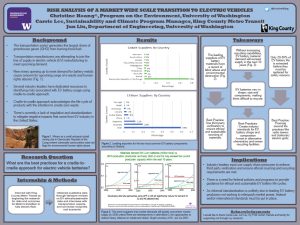Risk Analysis of a Market Wide Scale Transition to Electric Vehicles
Mass transportation is one of the largest contributors to greenhouse gas emissions (GHG). Thus in recent years, many governments and organizations have begun initiatives to switch out general automobiles for electric vehicles, raising demand for electric vehicle (EV) batteries. While using carbon free transportation is an efficient way to reduce emissions, there are substantial gaps in our understanding of the end of life management and life cycle ethics of electric batteries. Under the direction of the King County Metro Transit sustainability and climate program, I analyzed risks associated with EV batteries and identified options for better outcomes. To gather data, I relied on scholarly literature regarding ethical and sustainable issues with mining raw material or end of life for EV batteries and analyzed related sourcing statements, recycling programs, green deals and legislative measures. I then identified leading transportation and clean technology organizations and manufacturers to obtain qualitative data through interviews on existing concerns for EV batteries and what they would like to see from the industry. This research identified the need for greater top-down regulation and using third party certification for raw materials and recycling. I also found a lack of transparency within the industry that must be addressed to enforce ethical practices. Other industry recommendations include systems to extend the life for batteries and utilizing a second life option through stationary electric grids. With these efforts, the EV battery industry can reduce reliance on unethical raw materials, increase circular economy practices, and increase efficiency and sustainability.
